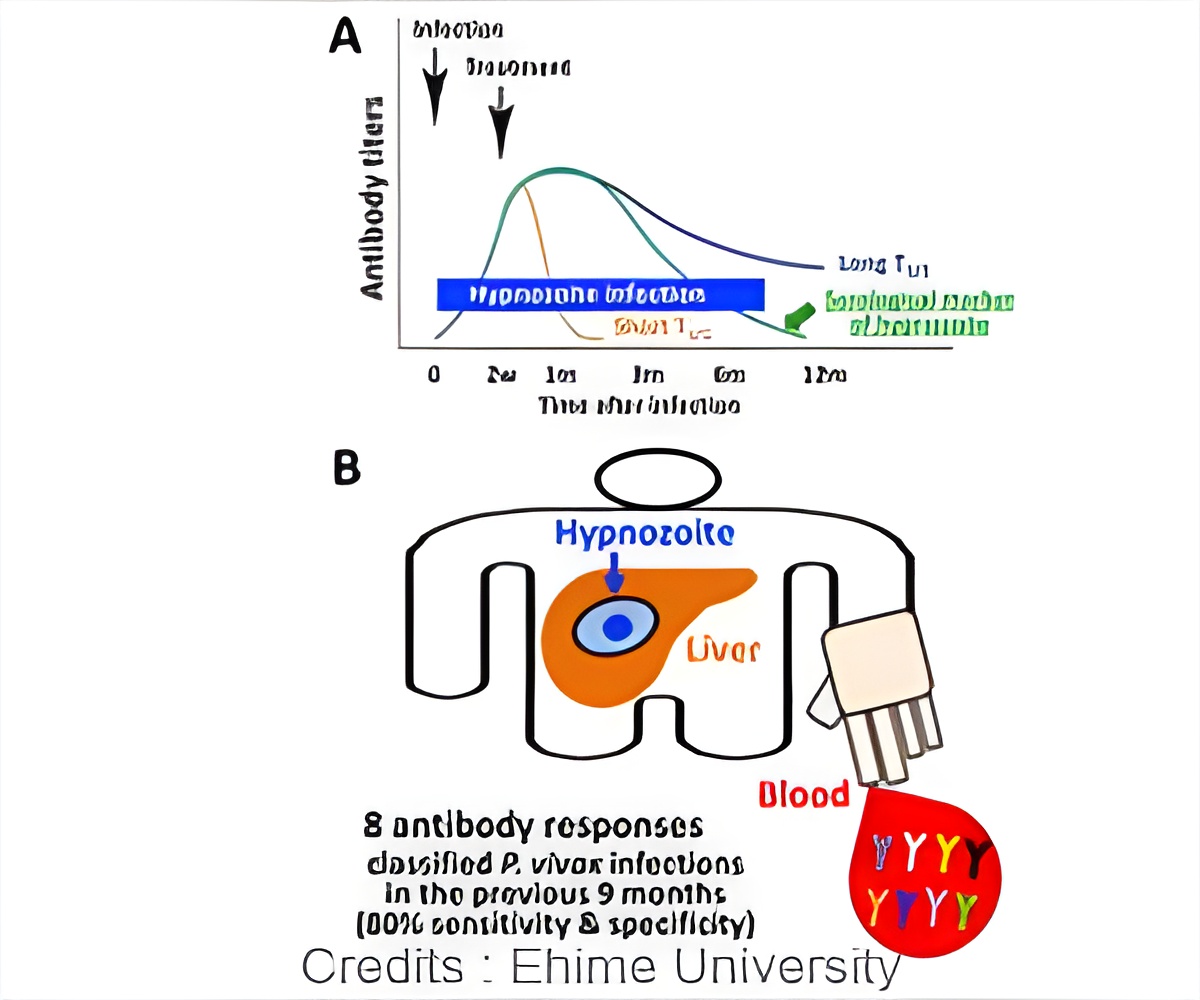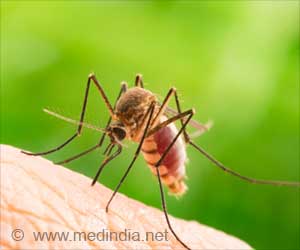Novel serological exposure markers are capable of identifying individuals with recent Plasmodium vivax infections who have a high possibility of harboring hypnozoites. The test could offer new opportunities for improving malaria control and elimination strategies.

TOP INSIGHT
Plasmodium vivax is the most widespread malaria parasite worldwide, with up to two billion people at risk of infection.
Read More..
This study developed a panel of serological exposure markers capable of classifying individuals with P. vivax infections within the previous nine months who have a high likelihood of harboring hypnozoites. 1) We measured IgG antibody responses with the AlphaScreen system to 342 P. vivax proteins expressed by a wheat germ cell-free system, invented at Ehime University, in longitudinal clinical cohorts conducted in Thailand and Brazil and identified 60 candidate serological markers of exposure. 2) Candidate markers were validated using samples from year-long observational cohorts conducted in Thailand, Brazil, and the Solomon Islands and antibody responses to eight P. vivax proteins classified P. vivax infections in the previous nine months with 80% sensitivity and specificity. Mathematical models demonstrate that a serological testing and treatment strategy could reduce P. vivax prevalence by 59-69%.
These eight antibody responses can serve as a biomarker, identifying individuals who should be targeted with anti-hypnozoite therapy. The test offers new opportunities for improving malaria control and elimination strategies.
Source-Eurekalert
 MEDINDIA
MEDINDIA




 Email
Email










